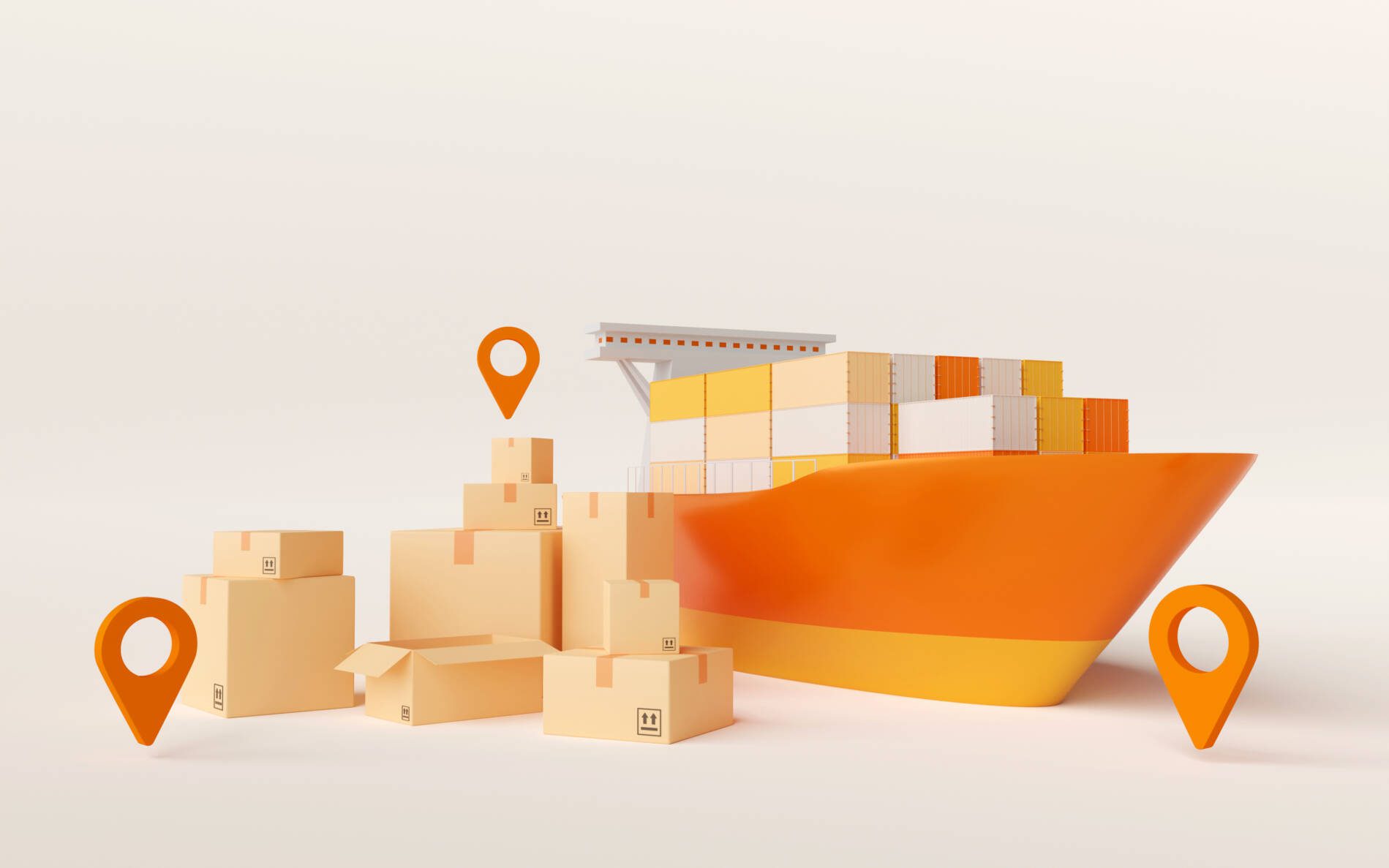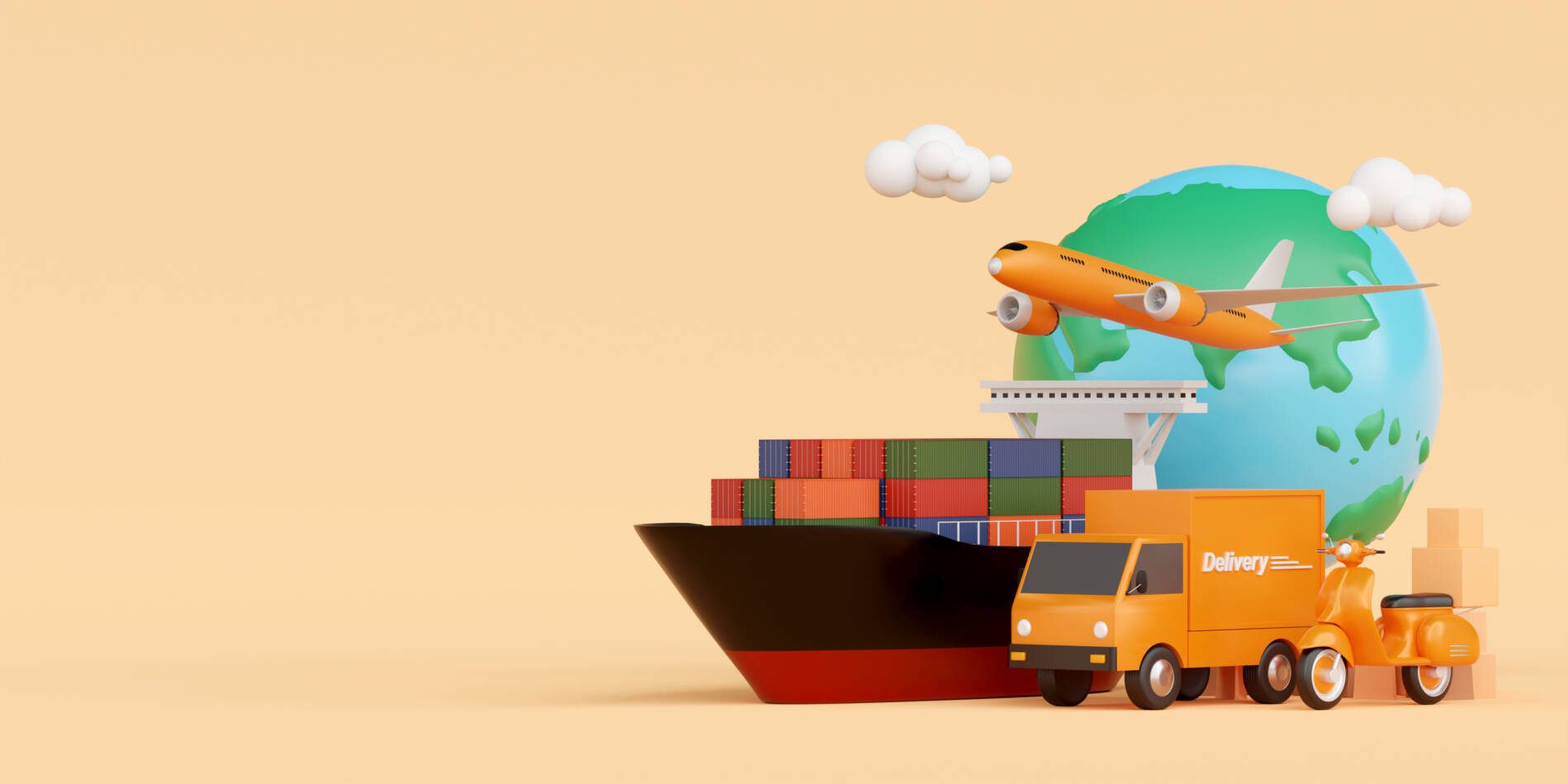DDP vs DAP Shipping; What is it? Why is it important?
Looking to familiarise yourself with DDP and DAP shipping, and why it’s an important aspect in the eCommerce and logistics industry? Keep reading to find out more!



DDP Shipping Explained.
In the world of fulfilment, it seems there are umpteen jargonistic terms that may mean very little to most people. If you are looking at sending your items internationally, then you’ll no doubt come across the term DDP shipping. On the face of it, this may seem like another abbreviation that causes intrigue and confusion, sometimes, even we need to revisit it!
We know there are many terms in the fulfilment industry that require further analysis and explanation, so you’re exactly up to speed. Thankfully for you, our extensive guide covers all the intricacies of DDP shipping.
Many companies will only use the DDP shipping method when it comes to goods that are being shipped via air or sea, and due to the complex rules that are associated with international shipping, DDP tends to work best with high-value items since it tends to be an expensive method of shipping if not handled correctly.
Duty Paid Delivery; DDP
So, let’s delve into the myth that is DDP shipping. DDP stands for ‘delivered duty paid’. In the world of e-commerce, DDP shipping is extremely important, as it enables sellers to ship their orders globally. Many companies utilise DDP when shipping goods by air or sea freight. Essentially, DDP shipping is a shipping method that puts the onus on the seller in terms of responsibility. Until a buyer receives their purchase, the seller is responsible for any risk and fees associated with the shipping process.
Sellers will pay any taxes and fees liable, which although places extra pressure on the seller, it is a surefire way of encouraging consumers to buy items from your online store. The reason being? Well, a buyer isn’t going to want to place unnecessary risk on their order, and incur higher shipping costs or taxes – or worse still – being scammed. By entrusting a company that adopts DDP shipping, the buyer is protecting themselves from any potential financial hardship as a result of shipping costs.


DDP Shipping Fees
When ascertaining the best shipping method to employ for your e-commerce fulfilment, you need to be clear on the total fees and how this may impact your e-commerce store – for better or worse. Sellers are responsible for all of the following fees:
- Shipping fees
- Shipping insurance
- Damage fees
- VAT
- Storage
- Import and export customs duties
Quite simply, the responsibility remains with the seller right up until the specified point of receipt, whereby the responsibility changes from the seller to the buyer.
DDP, DDU and DAP: Incoterms explained
Incoterms? Is that yet more jargon that needs debunking? You won’t generally find this term used much outside of fulfilment and shipping quarters, but essentially abbreviated terms like DDP are commonly referred to as Incoterms. Defined by the International Chamber of Commerce, Incoterms are vital components of global e-commerce. There are several that are used across the industry that all bear relevance and are of equal importance.
DDP and DDU – What’s the difference?
Although there is only one letter difference in terms of the acronym, there is a marked difference in both Incoterms and what they mean.
DDP – Delivered duty paid
DDU – Delivered duty unpaid
Essentially, the major difference between DDP and DDU is responsibility and the point in the journey where this is assumed by the buyer. DDP provides the most protection, and ensures the merchant takes the main bulk of responsibility. It provides a better customer experience, and is commonly used for cross-border shipping. Where DDU differs is that the fees and taxes are assumed by the buyer, once the shipment reaches the designated destination. Once the goods arrive at a particular destination, that’s when the responsibility is passed onto the buyer. Merchants have the option to increase costs and fees to the buyer in order to cover the costs of DDP.
Not to be outdone, we also have the Incoterm DAP. Although much less utilised than its counterparts, DAP stands for delivered at place. This means the seller assumes full responsibility for any costs and risks incurred for delivering items.

DDP vs DAP Agreements
The agreements and responsibilities relating to the buyer and seller vary depending on which shipping method is being used…
Why is DDP beneficial?
The DDP Timeline.
The DDP timeline is simple, the seller retains most of the liabilities until the product arrives at it’s final destination. There are 4 major steps involved.
The Benefits of DAP Shipping

Cons of DDP Shipping…
While convenient, DDP does have its drawbacks. One of the main cons is the increased complexity and the potential for delays at customs/port.
With DDP, the seller is responsible for handling all import duties, taxes, and customs clearance. This can be time-consuming and may result in additional costs or complications.
Since the seller takes on the responsibility of customs compliance, any errors or discrepancies can lead to penalties or fines.

DDP Shipping Explained
In the world of fulfilment, it seems there are umpteen jargonistic terms that may mean very little to most people. If you are looking at sending your items internationally, then you’ll no doubt come across the term DDP shipping. On the face of it, this may seem like another abbreviation that causes intrigue and confusion, sometimes, even we need to revisit it!
We know there are many terms in the fulfilment industry that require further analysis and explanation, so you’re exactly up to speed. Thankfully for you, our extensive guide covers all the intricacies of DDP shipping.
Many companies will only use the DDP shipping method when it comes to goods that are being shipped via air or sea, and due to the complex rules that are associated with international shipping, DDP tends to work best with high-value items since it tends to be an expensive method of shipping if not handled correctly.

Duty Paid Shipping; DDP
So, let’s delve into the myth that is DDP shipping. DDP stands for ‘delivered duty paid’. In the world of e-commerce, DDP shipping is extremely important, as it enables sellers to ship their orders globally. Many companies utilise DDP when shipping goods by air or sea freight. Essentially, DDP shipping is a shipping method that puts the onus on the seller in terms of responsibility. Until a buyer receives their purchase, the seller is responsible for any risk and fees associated with the shipping process.
Sellers will pay any taxes and fees liable, which although places extra pressure on the seller, it is a surefire way of encouraging consumers to buy items from your online store. The reason being? Well, a buyer isn’t going to want to place unnecessary risk on their order, and incur higher shipping costs or taxes – or worse still – being scammed. By entrusting a company that adopts DDP shipping, the buyer is protecting themselves from any potential financial hardship as a result of shipping costs.

DDP Shipping Fees
When ascertaining the best shipping method to employ for your e-commerce fulfilment, you need to be clear on the total fees and how this may impact your e-commerce store – for better or worse. Sellers are responsible for all of the following fees:
- Shipping fees
- Shipping Insurance
- Damage fees
- VAT
- Storage
- Import and export customs duties
Quite simply, the responsibility remains with the seller right up until the specified point of receipt, whereby the responsibility changes from the seller to the buyer.
Our Fulfilment Shipping Prices Start From Only £2.91
DDP, DDU and DAP: Incoterms explained
Incoterms? Is that yet more jargon that needs debunking? You won’t generally find this term used much outside of fulfilment and shipping quarters, but essentially abbreviated terms like DDP are commonly referred to as Incoterms. Defined by the International Chamber of Commerce, Incoterms are vital components of global e-commerce. There are several that are used across the industry that all bear relevance and are of equal importance.
DDP and DDU – What’s the difference?
Although there is only one letter difference in terms of the acronym, there is a marked difference in both Incoterms and what they mean.
DDP – Delivered duty paid
DDU – Delivered duty unpaid
Essentially, the major difference between DDP and DDU is responsibility and the point in the journey where this is assumed by the buyer. DDP provides the most protection, and ensures the merchant takes the main bulk of responsibility. It provides a better customer experience, and is commonly used for cross-border shipping. Where DDU differs is that the fees and taxes are assumed by the buyer, once the shipment reaches the designated destination. Once the goods arrive at a particular destination, that’s when the responsibility is passed onto the buyer. Merchants have the option to increase costs and fees to the buyer in order to cover the costs of DDP.
Not to be outdone, we also have the Incoterm DAP. Although much less utilised than its counterparts, DAP stands for delivered at place. This means the seller assumes full responsibility for any costs and risks incurred for delivering items.

DDP vs DAP Agreements
The agreements and responsibilities relating to the buyer and seller vary depending on which shipping method is being used…
Why is DDP beneficial?
The Cons of DDP Shipping…
While convenient, DDP does have its drawbacks. One of the main cons is the increased complexity and the potential for delays at customs/port.
With DDP, the seller is responsible for handling all import duties, taxes, and customs clearance. This can be time-consuming and may result in additional costs or complications.
Since the seller takes on the responsibility of customs compliance, any errors or discrepancies can lead to penalties or fines.
Why is DAP Used? What are the benefits?
The Cons of DAP Shipping…
Some buyers may negotiate with sellers to transfer more responsibility to them.
DAP shipping can lead to delays, particularly during customs clearance, and any associated costs like dunnage or detention are typically the buyer’s responsibility.
For sellers, non-payment of import duties by the buyer can result in significant issues and potential loss of the cargo shipment.

The Cons of DAP Shipping.
Some buyers may negotiate with sellers to transfer more responsibility to them.
DAP shipping can lead to delays, particularly during customs clearance, and any associated costs like dunnage or detention are typically the buyer’s responsibility.
For sellers, non-payment of import duties by the buyer can result in significant issues and potential loss of the cargo shipment.

Implementing DDP shipping for your e-commerce store
Whether you opt for the benefits of DDP, or if you decide DDU is better for your business needs, communicate with your customer base and inform them of your policies and what to expect when it comes to fees. Customers appreciate communication and being kept in the loop. You could implement a little FAQ section or insert policy info on your website or within email communications. That way, customers know exactly what to expect when purchasing items from your store.
Your shipping options with TSP
Whether you opt for DDP shipping, DDU or DAP, getting an expert fulfilment centre to take care of your shipping needs is the best tactic to adopt. A good fulfilment company can advise on the best shipping methods for your business requirements, and help scale your business through with global e-commerce fulfilment.
The Storage Place has everything you need for fast, efficient shipping. With a deluge of experience to call upon and our local port only 15 minutes away, we’re best placed to solve your shipping needs and help your business expand. Contact us today and find out we can help scale your e-commerce fulfilment.

Your shipping options with TSP
Whether you opt for DDP shipping, DDU or DAP, getting an expert fulfilment centre to take care of your shipping needs is the best tactic to adopt. A good fulfilment company can advise on the best shipping methods for your business requirements, and help scale your business through with global e-commerce fulfilment.
The Storage Place has everything you need for fast, efficient shipping. With a deluge of experience to call upon and our local port only 15 minutes away, we’re best placed to solve your shipping needs and help your business expand. Contact us today and find out we can help scale your e-commerce fulfilment.


DDP and DAP Shipping with TSP
Are you an international business looking to enter the UK market? Ae you a UK business looking to enter the global market? Whichever it is, we’ve got you covered with our reliable, cost effective services.
We are able to offer both DAP and DDP shipping, with in-house experts always on hand to help with any questions, and to talk you through shipping options, and both domestic and international fulfilment solutions.




